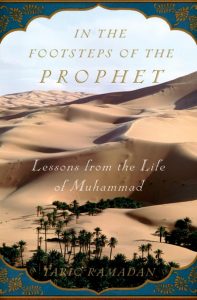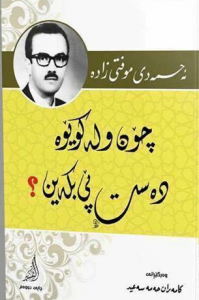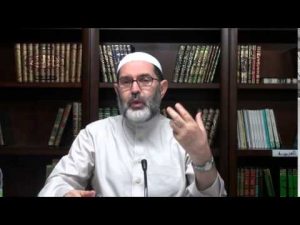Salam Alaykum. By reading books and listening to informative lectures, I’ve come across quiet many bible verses. There are a few verses like the story about the tower of Babel & Noah’s Ark that are used for general research, which can be useful. There are also stories I’ve never heard of as a muslim. So, how should a muslim really react to biblical studies, and know which verses is to believe?
Alaikumassalam wa rahmatullah,
We can read the Bible as an interesting historical artifact, but we cannot take any religious guidance from it unless it is strongly confirmed by the Quran. Our attitude is that while the Bible contains many important truths, 1. we can never be sure which parts are really true and which parts are later additions, and 2. the Quran contains everything beneficial that is contained in the Bible, so a person who only relies on the Quran is not missing out on anything they need.
Islam’s view is that the Quran is the “Final Testament”. Similar to the way a new version of a software program replaces an older version, the Quran replaces the Bible. The Bible, in the Islamic view, holds the corrupted version of God’s religion. The Torah (the first five books of the Old Testament) were given to the Jews as God’s guidance to them. Many prophets were sent afterwards to correct their errors and guide them back to God’s path, the sayings of some of these prophets make up some of the other books of the Old Testament, such the Book of Isaiah by the Prophet Isaiah who lived in the 8th century BC.
Jesus was the final Jewish Prophet who came to reform Judaism and ease some of their religion’s difficult laws.
47. She said, “My Lord, how can I have a child, when no man has touched me?” He said, “It will be so. God creates whatever He wills. To have anything done, He only says to it, ‘Be,’ and it is.”
48. And He will teach him the Scripture and wisdom, and the Torah and the Gospel.
49. A messenger to the Children of Israel: “I have come to you with a sign from your Lord. I make for you out of clay the figure of a bird; then I breathe into it, and it becomes a bird by God’s leave. And I heal the blind and the leprous, and I revive the dead, by God’s leave. And I inform you concerning what you eat, and what you store in your homes. In that is a sign for you, if you are believers.”
50. “And verifying what lies before me of the Torah, and to make lawful for you some of what was forbidden to you. I have come to you with a sign from your Lord; so fear God, and obey me.”
51. “God is my Lord and your Lord, so worship Him. That is a straight path.”
52. When Jesus sensed disbelief on their part, he said, “Who are my allies towards God?” The disciples said, “We are God’s allies; we have believed in God, and bear witness that we submit.”
53. “Our Lord, we have believed in what You have revealed, and we have followed the Messenger, so count us among the witnesses.”
54. They planned, and God planned; but God is the Best of planners.
55. God said, “O Jesus, I am terminating your life, and raising you to Me, and clearing you of those who disbelieve. And I will make those who follow you superior to those who disbelieve, until the Day of Resurrection. Then to Me is your return; then I will judge between you regarding what you were disputing. (The Quran, verses 3:47-55)
According to the Islamic view, Jesus was meant as a reformer of Judaism rather than the founder of a new religion. The Christians were meant to follow Jewish law as reformed by Jesus, and there are theories that the early Christians did follow Jewish law until Paul’s anti-law attitude (antinomianism) took over. There was a Jewish sect known as the Essenes which may have been the remnants of Jesus’s original followers. In the Dead Sea Scrolls we have documentation of this group’s beliefs; they continued to follow parts of Jewish law and continually referred to a false teacher who was corrupting Christianity (probably Paul).
While Jesus was a Jewish Prophet sent specifically to the Jews, Prophet Muhammad PBUH was a gentile (non-Jew) sent to all of humanity as God’s final prophet. Muhammad is descended from Abraham just like the Jews, but while the Jews are descendants of Isaac son of Abraham, Muhammad is a descendant of Ishmael son of Abraham (in Jewish literature Muslims are sometimes called Ishmaelites for this reason).
Just like Jesus, Muhammad was not meant to found a new religion exactly, he was meant as a reformer who brings back God’s true teachings as taught originally to Abraham:
67. Abraham was neither a Jew nor a Christian, but he was a Monotheist, a “Muslim” (”one who submits”). And he was not of the Polytheists.
68. The people most deserving to be associated with Abraham are those who followed him, and this prophet [Muhammad], and those who believe. God is the Guardian of the believers. (The Quran, verses 3:67-68)
In chapter, after narrating the stories of the Biblical prophets, the Quran tells us that we Muslims and those prophets are all part of the same community:
89. And Zechariah, when he called out to his Lord, “My Lord, do not leave me alone, even though you are the Best of heirs.”
90. So We answered him, and gave him John. And We cured his wife for him. They used to vie in doing righteous deeds, and used to call on Us in love and awe, and they used to humble themselves to Us.
91. And she who guarded her virginity. We breathed into her of Our spirit, and made her and her son a sign to the world.
92. This community of yours is one community, and I am your Lord, so worship Me. (The Quran, verses 21:87-92)
According to the Quran, all of the prophets are part of the same story, and the coming of Prophet Muhammad PBUH was not something out of the ordinary, it was an answer to a prayer by Abraham and his son made 2600 years before (around 2000 BC):
127. As Abraham raises the foundations of the House [the Kaaba in Mecca], together with Ishmael, “Our Lord, accept it from us, You are the Hearer, the Knower.
128. Our Lord, and make us submissive to You, and from our descendants a community submissive to You. And show us our rites, and accept our repentance. You are the Acceptor of Repentance, the Merciful.
129. Our Lord, and raise up among them a messenger, of themselves, who will recite to them Your revelations, and teach them the Book and wisdom, and purify them. You are the Almighty, the Wise.” (The Quran 2:127-129)
Some verses after the above, the Quran tells us that the Prophet PBUH was the answer to that prayer by using the same words to describe Prophet Muhammad that Abraham and Ishamel used in verse 129 in their prayer for a prophet:
151. Just as We sent to you a messenger from among you, who recites Our revelations to you, and purifies you, and teaches you the Book and wisdom, and teaches you what you did not know.
152. So remember Me, and I will remember you. And thank Me, and do not be ungrateful.



